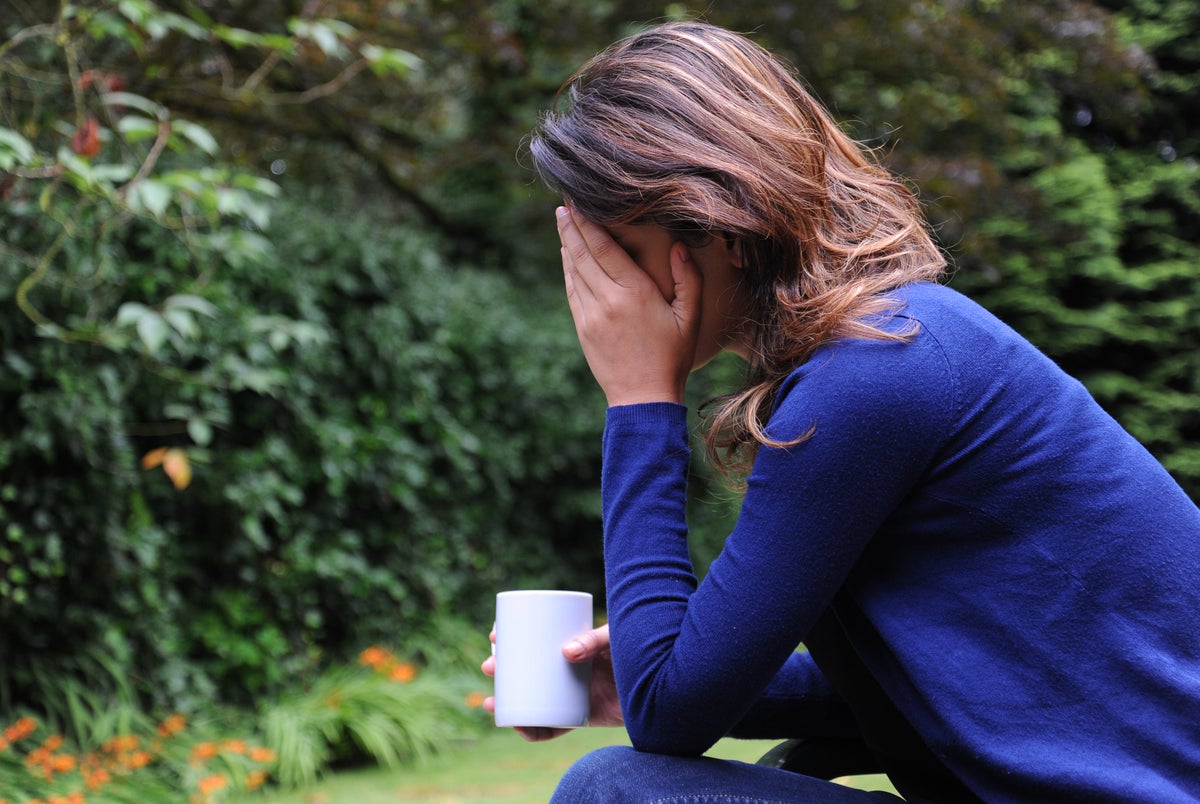
A “stark” worry gap has emerged since the coronavirus pandemic, with women twice as likely as men to be extremely worried about their lives, research suggests.
Women are now disproportionately bearing the burden of increased worries about parents, children, education and work-life balance, the National Centre for Social Research (NatCen) said.
Almost a fifth of women reported they were extremely worried about most areas of their life they were asked about in January 2022, compared with 9% of men.
There was little difference in levels of worry between men and women when they were questioned in 2018 and 2019, before the pandemic swept through Britain.
The findings are published in NatCen’s annual Society Watch report, which in 2022 examined the social legacy of the Covid-19 pandemic.
The pandemic increased the burden on many women who often had to deal with additional caring pressures, while many female-dominated sectors, from care work to the service industry, were particularly badly hit— Josefien Breedvelt, National Centre for Social Research
Researchers studied data collected via the NatCen Panel, a nationally representative sample of adults across Britain comprising 2,199 people in January 2018, 2,048 people in January 2019 and 1,122 people in January 2022.
Overall levels of worry have remained broadly stable over the three years, but this conceals a “previously unseen” gap between women and men.
This appears to be greatest with regard to the health and wellbeing of respondents’ families.
Almost three times more mothers (23%) than fathers (8%) reported being extremely worried about their lives.
More than half of women were extremely worried about the health and wellbeing of their parents (52%) and children (53%) compared with 32% and 34% of men respectively.
Twice as many women were experiencing “intergenerational worries” about their children and parents than men – 43% versus 21%.
And 31% of women were extremely worried about their work-life balance, compared with 20% of men.
Women may still be experiencing a greater impact from the ongoing legacy and stress that the pandemic brought about— Josefien Breedvelt, National Centre for Social Research
Josefien Breedvelt, NatCen director of analysis and co-author of the research, said: “While overall levels of worry appear to be the same in 2022 as they were pre-pandemic, this conceals a stark ‘worry gap’ that has opened up between women and men.
“The pandemic increased the burden on many women who often had to deal with additional caring pressures, while many female-dominated sectors, from care work to the service industry, were particularly badly hit.
“Women may still be experiencing a greater impact from the ongoing legacy and stress that the pandemic brought about.
“If ongoing challenges from the pandemic and the cost-of-living crisis fall disproportionately on women, we may see an even greater divergence in levels of worry between men and women in Britain.”
A government spokesperson said: “We recognise the pandemic, along with the rising cost of living, has had a significant impact on people’s mental health, and we are working to ensure that there are appropriate services in place to treat those that need it.
“We are transforming mental health services, which will see over £2.3 billion of additional funding a year by 2024 – and we have already made considerable progress, with mental health support teams for pupils now covering 26% of the country a year earlier than planned, and 24/7 crisis lines established in all parts of the country.
“We understand that people are struggling with rising prices, which is why we have acted to protect the eight million most vulnerable British families through at least £1,200 of direct payments this year, with additional support for pensioners and those claiming disability benefits.”







